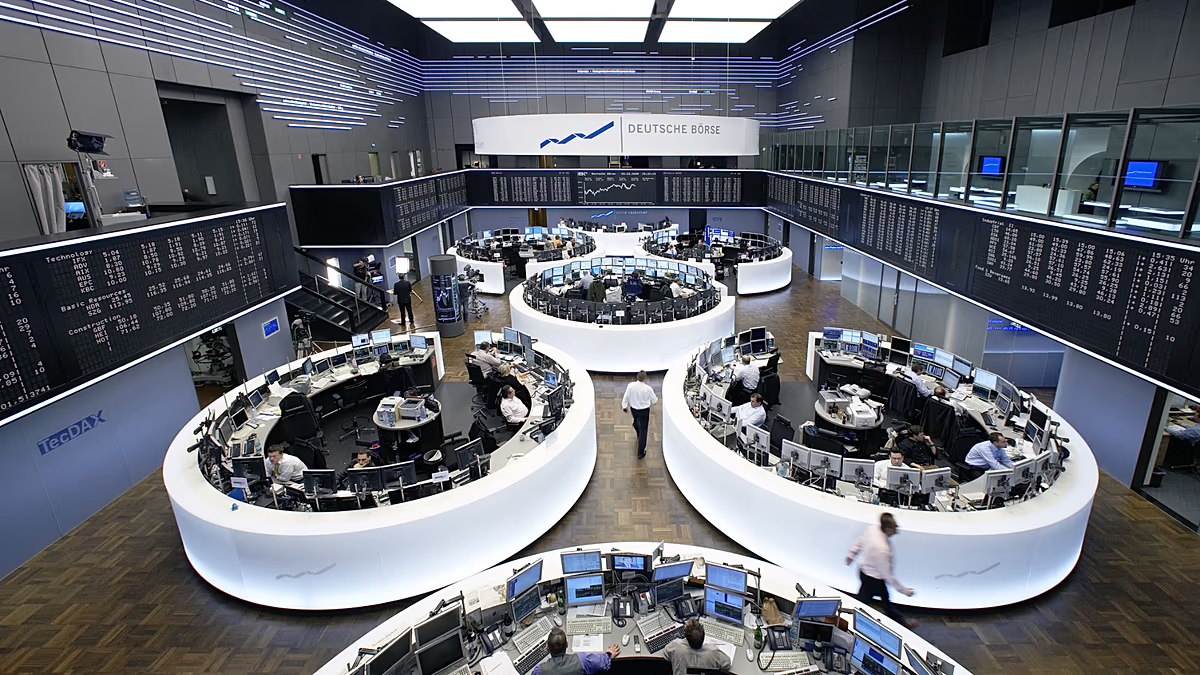Commission investigates possible collusion between Deutsche Börse and Nasdaq
Published on 06/11/2025 – 20:47 GMT+1
•Updated
20:56
The Commission launched on Thursday an investigation into a potential collusion between the two stock exchange groups, Deutsche Börse and Nasdaq, in the market for derivative financial products.
At the heart of EU antitrust enforcer’s concerns is the potential coordination of their conduct in the listing, trading, and clearing of those derivatives, which, if proven, would be in violation of EU’s competition rules.
EU law encourage competition between different economic operators to ensure that prices are set fairly by the market, free from any collusion or abuse of dominant position.
In September 2024, the Commission carried out unannounced inspections at the premises of both financial groups, as permitted under EU rules.
It targeted their practices around financial derivatives, which are contracts whose value changes depending on the price of another asset, such as stocks or commodities.
“Deutsche Börse and Nasdaq entities may have entered into agreements or concerted practices not to compete,” the Commission said in a statement, “in addition, the entities may have allocated demand, coordinated prices and exchanged commercially sensitive information.”
A deal made in 1999
Deutsche Börse and Nasdaq are among the world’s largest stock exchange groups.
According to EU competition commissioner Teresa Ribera, such behaviours could also affect “the proper functioning of the Capital Markets Union – a cornerstone for innovation, financial stability and growth.”
The completion of the European Capital Markets Union — a barrier-free market for capitals aimed at reducing their costs for listed companies and improve investment conditions — is one of the priorities of Commission’s president Ursula von der Leyen.
If there was a collusion between Deutsche Börse and Nasdaq, it would constitute “an artificial barrier” on the EU market, Commission’s spokesperson Thomas Regnier told Euronews.
Deutsche Börse reacted in a statement saying : “We are engaging constructively with the European Commission.”
The stock exchange group explained that the Commission’s investigation concerned a 1999 deal, which Deutsche Börse considers “pro-competitive”.
“It aimed to build deeper liquidity in the respective Nordic derivatives markets and create efficiencies,” it argued, adding: “It provided clear benefits for market participants and was public.”
The 1999 deal was made between Deutsche Börse’s derivatives branch Eurex and the Helsinki Stock Exchange, which was acquired by Nasdaq in 2008, for the Nordic derivatives markets, it said.
